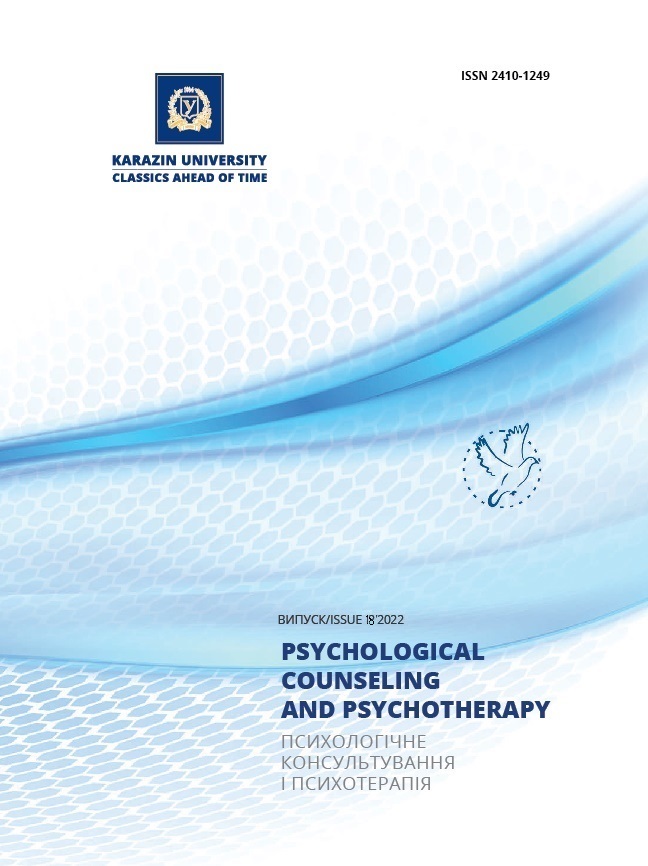Особливості мотивації навчальної діяльності в учнів середніх класів закладів з різними системами навчання
Анотація
Постановка проблеми Постійна трансформація зовнішніх мотивів, що обумовлено частими змінами в соціумі та змінами в системі освіти, потребує відповідної модифікації внутрішньої регуляції особистості учнів. Існування закладів зі змішаними системами навчання потребує дослідження особливостей мотивації навчальної діяльності учнів, які в них знаходяться, що особливо важливо у підлітковому віці. Аналіз проблеми У науковій літературі в структурі мотивації навчальної діяльності виділяють дві основні групи типів мотивів: зовнішні та внутрішні. До зовнішніх мотивів належать: соціальне схвалення, престижність навчання, спілкування, страх покарання, позакласна навчальна мотивація; до внутрішніх: мотивація досягнення, пізнавальний інтерес, самореалізація, усвідомлення соціальної необхідності. Мета дослідження – виявити особливості мотивації навчальної діяльності в учнів середніх класів закладів з різними системами навчання. Методи дослідження – Методика діагностики типу шкільної мотивації у школярів» (Е. Лепешва). Для математико-статистичної обробки використовувалися: факторний аналіз методом головних компонентів Varimax та φ – кутове перетворення Фішера. Опис вибірки вибірку склали 84 респондента. Це учні 6 класів (12 років) загально-освітніх шкіл Донецької області. Вони були розподілені на три групи. Перші дві групи склали, відповідно, дівчата (30) та хлопці (24), які навчалися в класах виключно з однолітками своєї статі. Третя група є змішаною, до якої увійшли дівчата та хлопці по 15 досліджуваних. Висновки В мотивації навчальної діяльності учнів середніх класів, які навчаються в закладах з різними системами навчання, не виявлено суттєвих відмінностей за всіма мотивами, окрім «позакласна навчальна мотивація» та «самореалізація». Найбільш вираженими у представників всіх трьох груп є група внутрішніх мотивів. Створено факторні структури мотивації навчальної діяльності по кожній з груп мотивів. У дівчат, які навчаються в змішаних класах виявлено феномен «трансформації» структури мотивації навчальної діяльності по чоловічому типу.
Завантаження
Посилання
Kocharian, O.S., Frolova, Ye.V. Pavlenko, V.M. (2011). The structure of the motivation of students' educational activities: a study guide]. Kharkiv: National Aerospace University of M.E. Zhukovsky “Khark. Aviation Institute”. (in Ukrainian)
Kuzma-Kachur, M.I., Horvat, M.V., Savko, S.L. (2021). Motivation as a factor in the successful formation of natural science competence of younger schoolchildren in the process of educational and cognitive activity. International scientific journal "Education and Science", Mukachevo-Chenstokhova: RVV MDU; Academy named after Ya. Dlugosha, 1(30). 56-61. (in Ukrainian).
Mikheieva, L.V. (2005). Formation of motivation to study pedagogical disciplines by future teachers of labor and vocational training. (PhD. Thesis). Vinnytsia state Pedagogical University named after Mykhailo Kotsiubinskoho. Vinnitsa. (in Ukrainian).
Nikitina, I.V., Martych, I.V. (2010). The formation of a student's professional motivation as a determinant of his creative development and employment]. Visnyk NTTU-KPI. Filosofiia. Psykholohiia. Pedahohika, (1), 206-211. (in Ukrainian).
Dokuchyna T.O. (2011). Learning motivation as a key to stimulating students to achieve success. Pedagogical education: theory and practice: collection. of science works]. Kamianets-Podilskyi: PP Zvoleiko D.H. (8), 32 37. (in Ukrainian).
Khalko, M.S. (2018). Characteristics of the motivational component of the educational activity of a junior high school student. Scientific journal of the National Pedagogical University named after M. P. Drahomanov. Kyiv: Psychological sciences, 7(52). 150-156. (in Ukrainian).
Hrytsenok, L.I. (2010). Motyvatsiia navchannia studentiv-pravoznavtsiv. Naukovyi visnyk KNUVS. (4). 179-188. (in Ukrainian).








